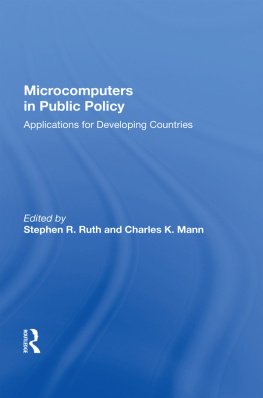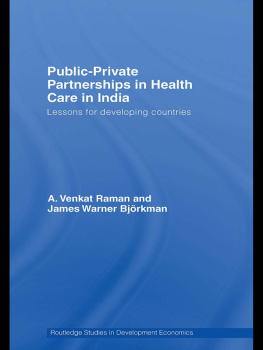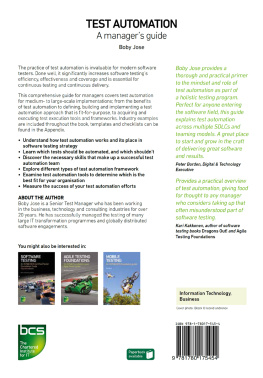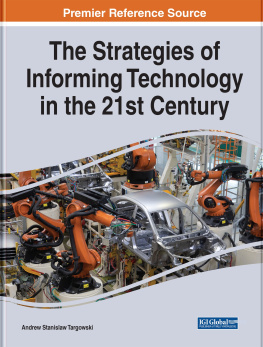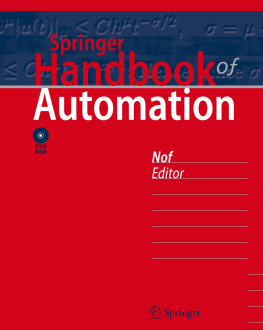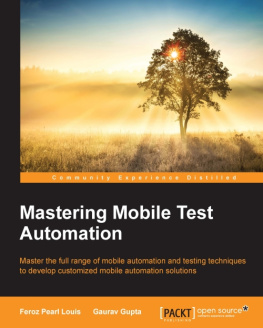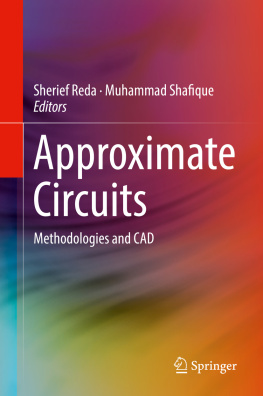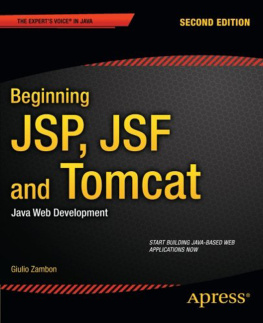AAAS Selected Symposia Series
Published by Westview Press, Inc.
5500 Central Avenue, Boulder, Colorado
for
the American Association for the Advancement of Science 1333 H Street, N.W., Washington, D.C.
First published 1987 by Westview Press
Published 2018 by Routledge
52 Vanderbilt Avenue, New York, NY 10017
2 Park Square, Milton Park, Abingdon, Oxon OX14 4RN
Routledge is an imprint of the Taylor & Francis Group, an informa business
Copyright 1987 by the American Association for the Advancement of Science
All rights reserved. No part of this book may be reprinted or reproduced or utilised in any form or by any electronic, mechanical, or other means, now known or hereafter invented, including photocopying and recording, or in any information storage or retrieval system, without permission in writing from the publishers.
Notice:
Product or corporate names may be trademarks or registered trademarks, and are used only for identification and explanation without intent to infringe.
Library of Congress Catalog Card Number: 87-71155
ISBN: 0-8133-7144-9
ISBN 13: 978-0-367-00867-3 (hbk)
About the Book
This book presents a series of perspectives on the use of automation in the formulation and execution of public policy initiatives in developing nations. The focus is the use of the most pervasive new automation technology in the developed world-the microcomputer-as it is introduced and used in countries whose public and private sectors are just beginning to select appropriate automation methodologies. A broad range of topics is examined, including specific system development methods, appropriateness of hardware and software, painful lessons learned, successful training techniques and methods for reducing the fear associated with computer technology. There is also a section recommending Technology Sharing Organizations, quick, efficient groups whose sole purpose is to operationalize good systems techniques and implementation planning and deliver the results in months, instead of the tragically typical delay of years or more.
A surprising idea this book presents is that the best strategy for sucessful computer-based automation in developed countries is less money and more planning; that is, a carefully focused plan of training and detailed analysis long before programming and machine issues are considered. This stitch in time approach has often resulted in dramatic reductions in cost and delays in the developed world and should be used in developing nations as well.
About the Series
The AAAS Selected Symposia Series was begun in 1977 to provide a means for more permanently recording and more widely disseminating some of the valuable material which is discussed at the AAAS Annual National Meetings. The volumes in this Series are based on symposia held at the Meetings which address topics of current and continuing significance, both within and among the sciences, and in the areas in which science and technology have an impact on public policy. The Series format is designed to provide for rapid dissemination of information, so the papers are reproduced directly from camera-ready copy. The papers are organized and edited by the symposium arrangers who then become editors of the various volumes. Most papers published in the Series are original contributions which have not been previously published, although in some cases additional papers from other sources have been added by an editor to provide a more comprehensive view of a particular topic. Symposia may be reports of new research or reviews of established work, particularly work of an interdisciplinary nature, since the AAAS Annual Meetings typically embrace the full range of the sciences and their societal implications.
WILLIAM D. CAREY
Executive Officer
American Association for the Advancement of Science
Contents
Stephen R. Ruth and Charles K. Mann
Charles K. Mann
Robert Schware and Alice Trembour
Carl H. Gotsch
Philip F. Palmedo
Thomas C. Pinckney, John M. Cohen, and David K. Leonard
Clay G. Wescott
Janice Z. Brodman
Barry K. Render and Stephen R. Ruth
Stephen R. Ruth
Charles K. Mann
Stephen R. Ruth and Charles K. Mann
When the microcomputer first appeared ten years ago in the industrial world, large amounts of computing power already was taken for granted. Most medium and large institutions had mainframe computers; many engineers and other knowledge workers had access to them through timesharing terminals.
In the developing countries, however, there was relatively little installed mainframe computer capacity when the first microcomputers began to trickle in. For this reason, the impact and importance of microcomputers ultimately may be more profound in the developing countries than the developed. In the industrial countries, it changed the nature of access to computing power. In the developing countries, it opened access where before none had existed at all. Today's power-ful and inexpensive microcomputers represent a far greater qualitative change in the public and private management environment of the developing countries than in the developed ones. In the former, there was virtually nothing; now there is an explosion of computer power; in the latter there was much; now there is more. Consequently, however great the impact in the developed countries, in the developing countries it is likely to spark even more rapid and profound changes.
This book documents and analyzes some of these changes. With trained manpower far more scarce in the developing countries than the developed, making such manpower more productive is a high priority task. In spreadsheet could speed up their work. Mann goes on to argue that while microcomputers were introduced to automate existing tasks, gradually the users discovered that those tasks themselves were defined in part by the primitive tools at hand. With new computer tools, new tasks-once impossible-could be undertaken. Thought experiments became easy with computerized spreadsheets; near real-time expenditure monitoring became practical; management information systems became timely enough to permit correcting problems before they became acute. People soon moved beyond the metaphors which facilitated their entry to computing.
Schware and Trembour appropriately inject a note of caution, urging that computers not be pushed too fast. A stark and useful contrast is evident between the Tunisian experience reported by Mann and another Tunisian computer project reported by Schware and Trembour. While both projects used Apple II computers, the former used only standard spreadsheet software allowing graduated entry to computerization. The first applications were simple extensions of familiar pencil and paper spreadsheets.
In the Central Tunisian Development Authority (CDTA) program, such off-the-shelf software was not provided. Rather, expatriates created custom programs for a new survey processing task and provided training to Tunisians on how to use it. This custom software seems to have been a critical difference. Unlike the former project where the Tunisians built their own spreadsheet models, the Tunisians in the CTDA project never seemed to achieve real ownership of the computer installation. Schware and Trembour report that despite a great deal of technical assistance and follow-up, in the three years since the team was in Tunisia, the hardware has not been successfully installed and is not performing tasks a local or regional unit of government might find useful. This represents a sharp contrast with the many applications running on the Ministry of Agriculture's Apple II system where there was virtually no expatriate programming at all, but where two Tunisians were given a six week course in using standard software packages. This contrast suggests the importance of avoiding the not invented here syndrome when introducing computers. It suggests the usefulness of user friendly programs where local staff can set up their own procedures based upon training in general purpose software rather than custom programs created from scratch.

